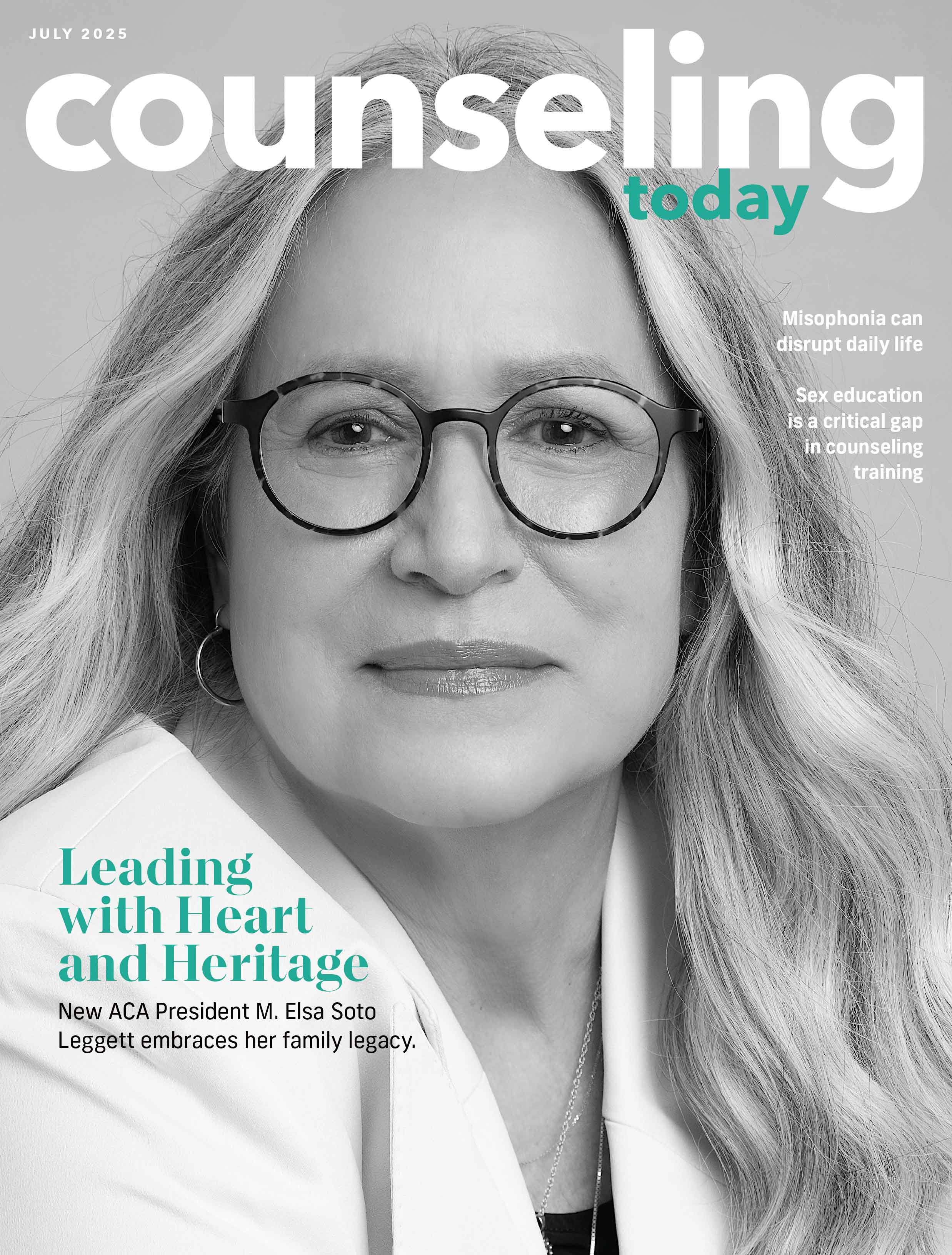General Session Recap: Nourishing Young Children’s Well-Being
By Caren Clark
March 2025
-and-jeanette-betancourt-(right).png?sfvrsn=ffae5bd0_2)
On the second day of the 2025 ACA Conference & Expo, ACA President Christine Suniti Bhat, PhD, LPC, LSC, welcomed two speakers during a general session on children's well-being. The first was teenage “changemaker” Samirah Horton, an award-winning DJ dedicated to fighting bullying in schools. The second was Jeanette Betancourt, EdD, senior vice president for U.S. social impact at Sesame Workshop.
Never Too Young to Make a Change
Sixteen-year-old Samirah Horton is the founder and CEO of You Are Never Too Young to Make a Change. She is on a mission to provide anti-bullying services, raise self-esteem and empower children to become changemakers.
An energetic Horton took the stage to discuss her experiences with bullying and how it relates to mental health. She noted that 90% of the students she speaks to say they have experienced some type of bullying, which often comes in three forms: verbal, physical and cyberbullying.
From a young age, Horton experienced bullying about her deep voice, which affected her confidence. “I started to change who I was as a person,” she says. “That same confident girl would make herself physically smaller in rooms.”
Luckily, Horton's supportive parents helped her build resilience, but she wondered what happened to kids without support systems, or whose parents thought bullying was a character-building rite of passage.
“That type of mindset creates a loop of negativity,” she says. Stopping bullying early is important because young bullies eventually become adults, and as Horton points out, “These same adults ... sometimes end up in our political office.”
She encouraged the audience to teach young people that what makes someone different can actually be their superpower. When youth learn to turn negativity into purpose and passion, they can make change.
“If you can teach them that their words matter, and their opinions are valued, you can have a much better world.”
Evidence-Based Resources from Sesame Workshop
Jeanette Betancourt, EdD, is the senior vice president for U.S. social impact at Sesame Workshop, the nonprofit organization behind “Sesame Street.” Betancourt discussed research-based strategies and resources to ease the effects of trauma and strengthen critical connections between adults and children.
About the Workshop
Sesame Workshop, founded in 1969, revolutionized children’s education by using television to guide children’s learning and development. Their global mission is to help children grow smarter, stronger and kinder so each generation is empowered to build a better world. Betancourt says, “We need to start early and understand early childhood to set the foundations for so many things because [children] are our future.”
Sesame Workshop emphasizes the importance of early childhood development, particularly the first five years, during which children experience rapid brain growth. The organization also addresses critical issues like poverty and trauma, highlighting that one in six children lives in poverty, and one in 25 children under age five may not reach age 40 due to environmental factors.
Foundation for Emotional Well-Being
Professional counselors, and other adults around children, can play a vital role in childhood development by forming a “circle of care.” Part of this work includes establishing a foundation for emotional well-being that includes four essential components: emotional awareness, nurturing connections, mind and body connection, and a compassionate mindset.
Resources
To support the development of this foundation, Sesame Workshop offers freely available resources such as digital storybooks, videos and interactive activities.
The resources tackle difficult topics such as grief, divorce and homelessness. For example, a resource called the “7 Cs” provides seven important reminders for children whose parents struggle with addiction by using language kids can understand — cause, control, cure, care, communicate, choices, celebrate.
Sesame Workshop also provides practical guidance for caregivers and providers, such as a three-hour course that explains child development in an easy to understand way.
They also offer resources about neurodivergence, digital wellness tools to provide a positive structure for media use and an initiative for military families.
Betancourt invited attendees to take advantage of these resources in their work. “If we don’t collectively start in the early years,” she says, “then we risk losing the next generation. Each of you have that power in your advocacy, thinking and strategy.”
Search CT Articles
Current Issue
Sign Up for Updates
Keep up to date on the latest in counseling practice. Sign up to receive email updates from Counseling Today.


